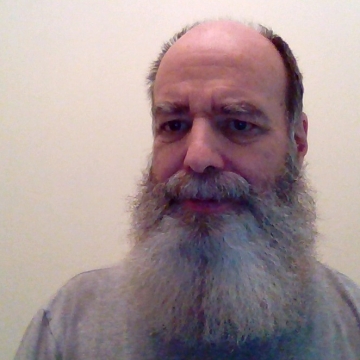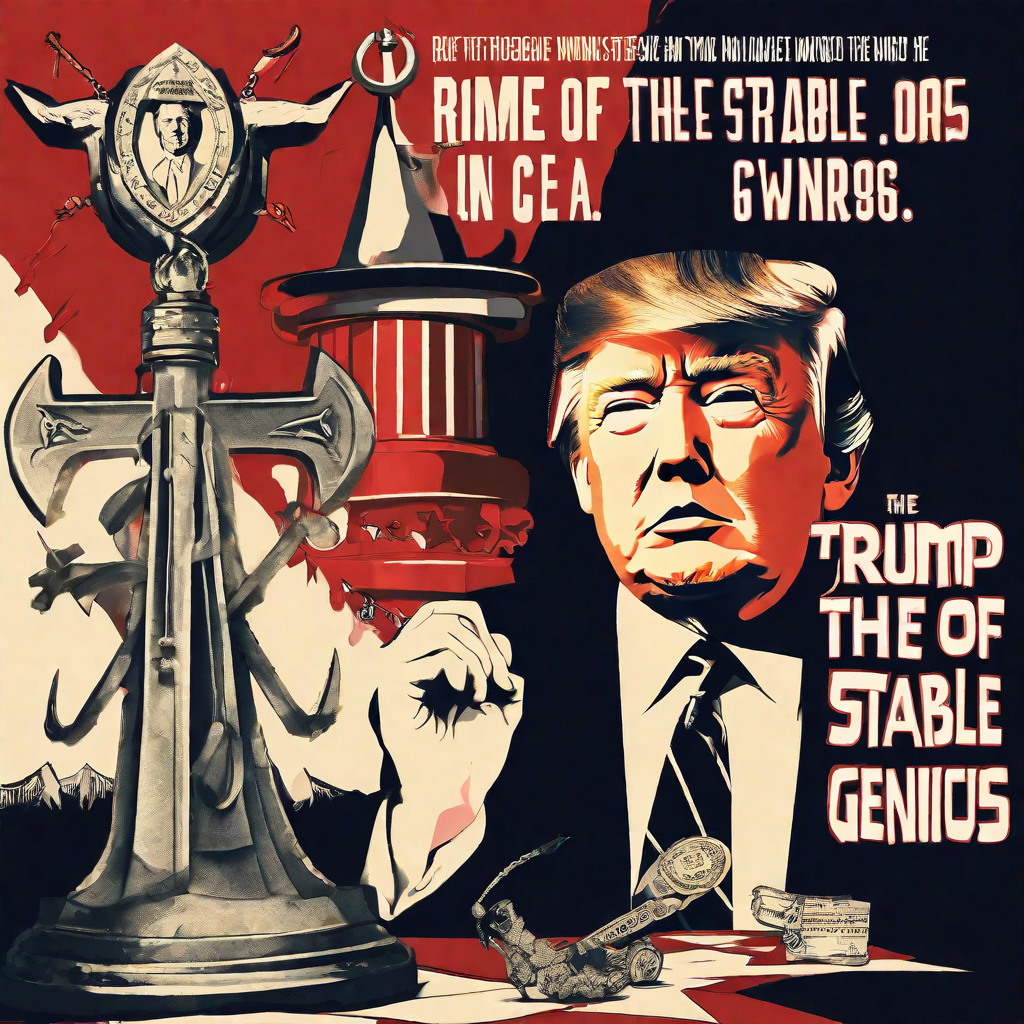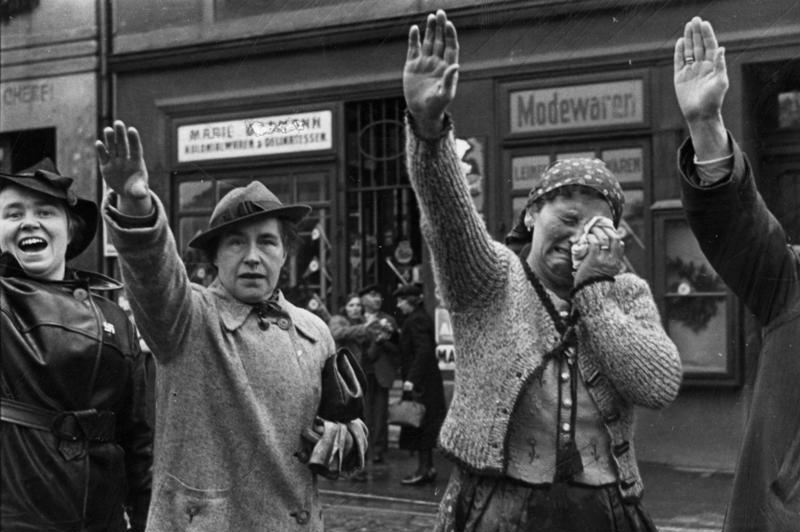
SUMMARY: There is a discrepancy between widespread public support for certain policies and the passage of contrary legislation, particularly regarding divisive social issues. What political and psychological influences explain this divide? How can there be so much agreement on what should be done, and so little action towards it? Personal perceptions, mainstream and partisan media narratives, and the role of political polarization influence candidate recruitment and election outcomes. The belief that only extremist candidates can turn out the base helps keep us polarized. The disaffected and moderate electorate needs to become more engaged in our politics.
KEYWORDS: Polarization, Legislation, Perception, Media, Politicians, Extremist candidates, Voter turnout, Compromise, Policy differences
COMMENT: Which came first, the polarized electorate or the polarized politicians?
We hear a lot that Americans agree on certain policy proposals and initiatives and issues and stuff. Overwhelming majorities support codifying Roe v Wade, “common sense” gun legislation, DACA, marriage equality, trans transitions, and other hot button culture issues. However, legislation keeps getting passed that is contrary to the polling. Worse, the legislators and governors that enact the laws are not punished at the polls for their actions… that is until abortion rights became a voting issue, and, boy oh boy, are voters punishing elected officials for their abortion issues.
Tied to this issue of one side of a “divisive” social issue polling in overwhelming majorities, is the belief that our politics is hyper-polarized. How can the electorate be so polarized when the polarizing issues all have widespread agreement? Why are abortion rights amendments and initiatives passing in conservative states and legislative seats and governors being overturned based on the issue and legislatures still passing draconian anti-abortion legislation?
Are we really this schizophrenic as a nation or is there another explanation?
You’re in luck in two ways: First, political scientists actually research the current state of our politics. And, second, I read their research and report it to you. The MSM doesn’t read it, and if they do, they give it short shift, so here’s the inside skinny on why there seems to be such a gap between the polling, the legislation, and election outcomes.
Perceptions of Our Politics
Influences on our Personal Perceptions
The first thing we have to look at is our perceptions of our current situation. We all use several sources of data to inform our perception of our current political situation:
- The people around us. We look to friends, neighbors, co-workers, family, and our social media feeds as sources of opinion and perception. It is natural. We evolved to live in tribes and agreement on how the environment is interpreted helped our tribes be cohesive and group action effective. If everyone around you is saying the 2020 election was stolen, you’re very likely to believe that it was. If everyone around you is saying Trump is an unproductive malignant narcissist, you believe that he is. Conformity is a real thing. We act on perceptions that are contrary to direct evidence just to fit in.
- The mainstream media narrative. The MSM is all about the clicks, likes, and shares. It is all ad-revenue driven on the Interwebs. It’s one reason Ye Olde Blogge has only made $18.67 in three and a half years of advertising. They have to present the world in the most garish way possible so that its headlines serve as clickbait for all of us stuck on this side of the paywall and even for those of us with deep enough pockets to vault it. It is in the best interest of the MSM to present both sides as being extreme, the world as having this wide political gulf, and the extremists as being normal. Without all that, they don’t make their moneys.
- Partisan media narrative. Like it or not, there is a lot of partisan media out there on both sides. I know I read very liberal and snarky sources like Wonkette, Crooks and Liars, The Daily Kos, and Mock, Paper, Scissors. We all know about the the right-wing media bubble that seemingly all of our parents live in.
- Media whores. Let’s face it there are people whose whole lives revolve around their “ability” to get national or local media attention. That pushes the Overton Window towards extremes, and it just keeps on being pushed further and further out.
- Sources I’ve forgotten or otherwise left out. I’m sure there are sources of information that pollute our perceptions of our current political situation. Please let me know in the comments.
The upshot of all of this perceptioning and misperceptioning is that we as in you, me, and your favorite drunk rage uncle, all think the other side is more radical and far removed from centrist politics than they actually are. The polling suggests that there are few differences in our policy goals on big important issues. So, what are the differences?
Dissecting Policy Differences
First, there is the speed of change. Liberals tend to want big changes right now. Conservatives tend to take a wait and see attitude. Both sides want change to happen. It is just a question of when and how much. That’s what good honest political debate resolves. We come to a compromise on those issues. It pushes our policies and laws to the center, which leaves the radicals on the extremes of both sides dissatisfied, but the vast majority happy.
Second, there are the solutions themselves. Liberals are more comfortable overturning the way we do things. Handing impoverished families money to help lift their children out of poverty, for example. We’ve demonstrated that that is a successful and cost-effective way of reducing childhood poverty. Conservatives favor incremental change. There “solutions” tend to be more tentative and take smaller steps.
Third, we also differ in how we see the solutions. Liberals see a bigger role for the government to play and conservatives see a larger role for the market place and big business. Now, here’s where my liberal — and perhaps yours, too — reality steps in. We’ve seen fifty years of trickle down economics putting us on a boom-and-bust cycle with Democrats correcting the list of our economic ship providing the boom and the tricklers attempting to capsize us with the busts. The truth of the matter is, liberal solutions frequently work and conservative’s don’t. However, that’s not the point. The point is that both sides have solutions even if conservative “solutions” are just transferring the wealth of the nation to the one percent as quickly as possible masquerading as solutions. More on this later.
And fourth, the level of our involvement in politics also affects how we see the other side. Those of us most involved, tend to see the opposition as more radical. The disaffected disinterested disengaged voter see’s both sides as, meh, making them the key to any and every election since 2016.
Our perceptions of the other side, tend to paint them as far more radical than they are. If the polling is to be believed, both sides want a solution to gun violence. Neither side wants to condemn trans kids to a living purgatory. So, if the people have common ground, why don’t our politicians?
The Polarized Candidate Conundrum
This is where the Great Civics Lesson rears its head again. Most of us — not most of my readers, but most of the electorate — don’t know how candidates for office become candidates for office.
Recruitment and Influence of Party Chairs
Our politicians tend to be highly polarized at least more polarized than the electorate. Our politicians, I’m looking at you Ted Cancun Cruz, Mitch No SCOTUS Appointment For Dems McConnell, and the House Freedumb Cockups and the rest of the Republican House caucus, tend to believe that compromise is a dirty word and refuse to do it unless they are drug kicking and screaming to it as we are seeing for funding for Ukraine, the border, and funding our government.
Where do polarized office holders come from? Polarized candidates.
Where do polarized candidates come from? No one seems to know, except them that do know. It is the national, state, and local party chairs that recruit candidates to run for offices. The chairs are appointed or elected by the party committees at each level. These party chairs tend to believe that extremest candidates win elections.
In 2013 county party chairs appointed extremist candidates at a ten-to-one clip in the Republican Party and two-to-one for Democrats. Conclusion, it isn’t just the “safe” seats delivered by gerrymandering, Constitutional advantage, and demographic changes that are creating the polarization in our governing bodies. It is the parties themselves.
The Vicious Cycle of Primary Elections
- Party chairs believe that polarizing candidates win, so they recruit radical candidates.
- Moderate candidates file to run in the party primary.
- Primary voters tend to be the party faithful, the more involved-in-politics voters who gravitate to the policies of the extremist candidates.
- The extremist candidates win the nomination.
- Their polarizing rhetoric is normalized.
- Party chairs have their view that polarizing candidates win, because they win the primaries. Why recruit a moderate when they don’t have a chance of winning the primary, right?
Polarization’s Impact on Voter Turnout
However, that isn’t the whole story. Voters that don’t like either candidate, tend to stay home during the elections. If you’re a moderate Republican and don’t like the Trumpist candidate primary winner, you don’t go out and vote for the Democrat, you just don’t vote. If you’re an indifferent inactive, inattentive sometimes voter, you probably weren’t going to vote anyway, and you don’t vote now.
Extremist candidates appeal to the base, turn off the meh voters, and win because the base in their constituency is bigger than their opponent’s base.
The base may support all of these issues like abortion access and gun legislation, but still vote for candidates that will not advance them and in fact work against them. Now that’s a conundrum, right? To answer that question, you’ll have to tune in to our next blog post on affective polarization.
Until then, we have to be satisfied with trying to find a way to appeal to the vast swath of mehing middle of the sometimes voting crowd. It is only through getting everyone to see voting as the solution to our polarization that we untangle this complex web that seems to keep us divided and unable to solve the myriad of problems that our MAGA brethren refuse to compromise on.

If you think this analysis of our political polarization is worthwhile and would like to see more of it out there in the blogsphere, please do one of the following:
- SHARE this post! If you liked it surely someone in your circle will appreciate it to, right? Right?
- LIKE or RATE this post using the like button below (requires a WordPress login) or the stars above (no login required) to let me know that I’m not alone in screaming into the ether.
- COMMENT on the post and let me know the issues that there is widespread agreement on in the electorate and how we appeal to the vast horde of nonvoting middle of the roaders.
- FOLLOW the blog or sign up for our email list so you don’t miss one of the haphazard irregular posts that I can squeeze out of my life!
Image Attribution
This image was generated using Poe’s StableDiffusionXL bot using the prompt, a political cartoon of political polarization
Categories: Political Psychology






















I’m reminded that our present system of primary elections, which most people regard as an “It’s always been that way.” thing, really isn’t. It is a reform implemented to replace the old “smoke filled room” in which party leadership and financial supporters chose the candidates in a soup of bribery and corruption. But, the corrupt will always find a way around any reform, and the more expensive running for office becomes, the more money matters. And, the money people on any side of the ideological divide have agendas that may have little to do with the hot button issues that can excite party base voters. So, as we approach the first primary for this round in which independent/unaffiliated voters can vote in a party primary of their choice, we see the semi-dark money of the Koch Network going to a candidate who presents as more “moderate” (nicer) and less of a loose cannon (a__h___) than the presumed leader and inevitable nominee. What are they thinking? Well, you work for who pays you, and that pile of money is also behind Agenda 2025, the real plan for permanent oligarchy and pseudo democracy. Perhaps the truly ultra rich libertarians want an employee as a candidate rather than a cult leader who gets his funding by grifting off his worshipers.
LikeLiked by 1 person
Howdy Bob!
I think that that analysis is pretty spot on. I saw in the news today that Dimon and other monied people are endorsing Trump. His tax cut for billionaires really worked. I guess there is a division among the ultra-wealthy. There are those who have truly strong political-social beliefs like the Koch Brothers and those who don’t care as long as their wealth continues to grow.
In New Hampshire, I see that Haley has reached 35% in the polls, only trailing Trump by 15% or so. An upset there is possible, which might could improve her standing in South Carolina — her native state. Wins in those two states could make it a race, which is interesting since Trump is a de facto incumbent nominee. Second place finishes, no matter how close, don’t interrupt Trump’s Sherman-esque march through the Republican primaries to the nomination.
That Koch money will help Haley a lot. You can’t win the nomination without it. But, money only influences elections so much. If she wins, she’ll be as bought and paid for as John Roberts and the rest of the Federalist Society’s judges. It’s a big if, though.
Huzzah!
Jack
LikeLiked by 1 person
How many state allow the independents to vote a primary ballot? NC (where I am) does?
One thing is certain. Assuming that Trump stays in the running, he will not ever choose as VP anybody who has run against him, not again.
LikeLiked by 1 person
Howdy Bob!
Here’s an interesting thought experiment. Should Trump lose the Republican Primary, would he run as an independent or on the No Labels ticket? He won’t if he has to do the organizing to get on the ballot in all fifty states, but he would if someone just handed him the opportunity.
You’re right about his running mate. He wants a sycophant. I doubt he could stomach a woman or a PoC, especially someone with any ambition like Stefanik. That puts Tim Scott in an interesting position. He’s mild mannered. Appears to lack any ambition or motivation other than holding a position of privilege — perfect qualifications for the VP spot — and he hedges against accusations of racism. I could see Trump picking him and never letting him upstairs a la Eisenhower and Nixon… or even past the Rose Garden.
Huzzah!
Jack
LikeLiked by 1 person
Denied the GOP nomination, Trump will keep running, even as a write-in, even if he is found ineligible, even from jail. He can’t stop, and he has just one answer to any election he does not win, “stolen”, “rigged”.
LikeLiked by 1 person
Howdy Bob!
Like Citizen Kane, Trump will be grousing about 2020 for the rest of his life no matter whether he wins or loses in 2024.
Huzzah!
Jack
LikeLiked by 1 person
And, we hope, about 2024 as well. The other inmates will get very tired of hear about it.
LikeLiked by 1 person
I’m sure the pre-nup with Melania was amended to limit the number of times he could gripe about witch hunts and having the election stolen.
LikeLiked by 1 person
If not, she might be having to wear that jacket a lot with “I DON”T CARE” on the back. They’ve long since given up pretending to be a happy couple.
LikeLiked by 1 person
I guess the pre-nup didn’t address living together or staying at Merde-a-Lardo. Trump just wasn’t thinking big enough when they drew it up, or Melanie [sic] pulled one over on him.
LikeLiked by 1 person
She might well be a woman able to get a horny man to agree to something he might regret.
LikeLiked by 1 person
Well, we’ve seen what happens when Trump follows the littlest of all heads.
LikeLiked by 1 person
LOL
LikeLiked by 1 person
Another thought: If Trump were to be found ineligible under the 14th, he would become an ordinary criminal defendant, no longer entitled to the special laxity of the bond terms the several courts have been allowing him. There would be no extraordinary problem with his awaiting trial in custody if he could not comply with standard bond terms. And, the scheduling of court dates would not be having to work around his campaign activities. It would be a real win for standard process and the authority of the judiciary, as well as getting on with the standard of speedy trials. Some of the Justices might ponder that feature of the case.
LikeLiked by 1 person
Howdy Bob!
It certainly would relieve a lot of the pressure on Republicans and the party. They wouldn’t have to make the choice about whether to support him or not. Because the Republican Congress could not bring themselves to vote to impeach and convict an obviously guilty Trump, they have to contend with him now. If they had wanted a way out of the Trump trap, that was their exit ramp. I doubt the courts will hand them one. Even though Roberts et al are bought and paid for by Federalist Society, I don’t think they’ll set such a radical precedence.
Huzzah!
Jack
LikeLiked by 1 person
Probably so. The oligarchy may have to hope he runs and loses, and Agenda 2025 becomes Agenda 2029. They do play the long game.
Speaking of oligarchs, this is an interesting piece: https://www.politico.com/news/magazine/2024/01/20/davos-populism-political-extremism-column-00136618
LikeLiked by 1 person
They’ve been at this for sixty years or more… maybe since FDR ushered in the New Deal.
LikeLike
When it comes to, the more, “controversial” issues of, abortion, gun control, same-sex marriage, etc., etc., etc., unless we are, personally, impacted (meaning that someone closest to us had DIED, because of it) by the issues, we usually, keep our, conservative or, radical, views, because, until we are, in the, close vicinty of these issues, we don’t really, become, aware of the, impacts of the decisions that we the people are, making, voting for the, various laws of gun control, abortion rights, same-sex marriage rights, and, these individuals who want these, rights can, only, FLEE, out of their, original states of, residences, to get their own rights, protected. And if we have to, FLEE, out of the region we live in, to have the necessary procedures like getting an abortion from rape, incest, or get to a state that allowed us to, marry our, same sex, partners, then, we don’t, OWN the, most basic of our own, human rights.
LikeLiked by 1 person
Howdy Taurus!
What you’re saying has held true for most Republicans. I’m always struck by how many Republicans came out for marriage equality and LGBTQ+ rights when a son or daughter came out to them. Nowadays, even that has been pre-empted.
People who study it say that empathy is not significantly different between conservatives or liberals, but it does seem to me that it is. They say what I think of as being motivated by empathy is really a sense of fairness that liberals have. It seems to me that fairness is rooted in empathy.
This is one of the reasons that representation is so important in the world. Seeing people like yourself heightens empathy for others in similar positions. You know what it would be like to be in their position. Will and Grace really helped LGBTQ+ rights and marriage equality. The Big Bang Theory played a similar role for autism.
Huzzah!
Jack
LikeLike